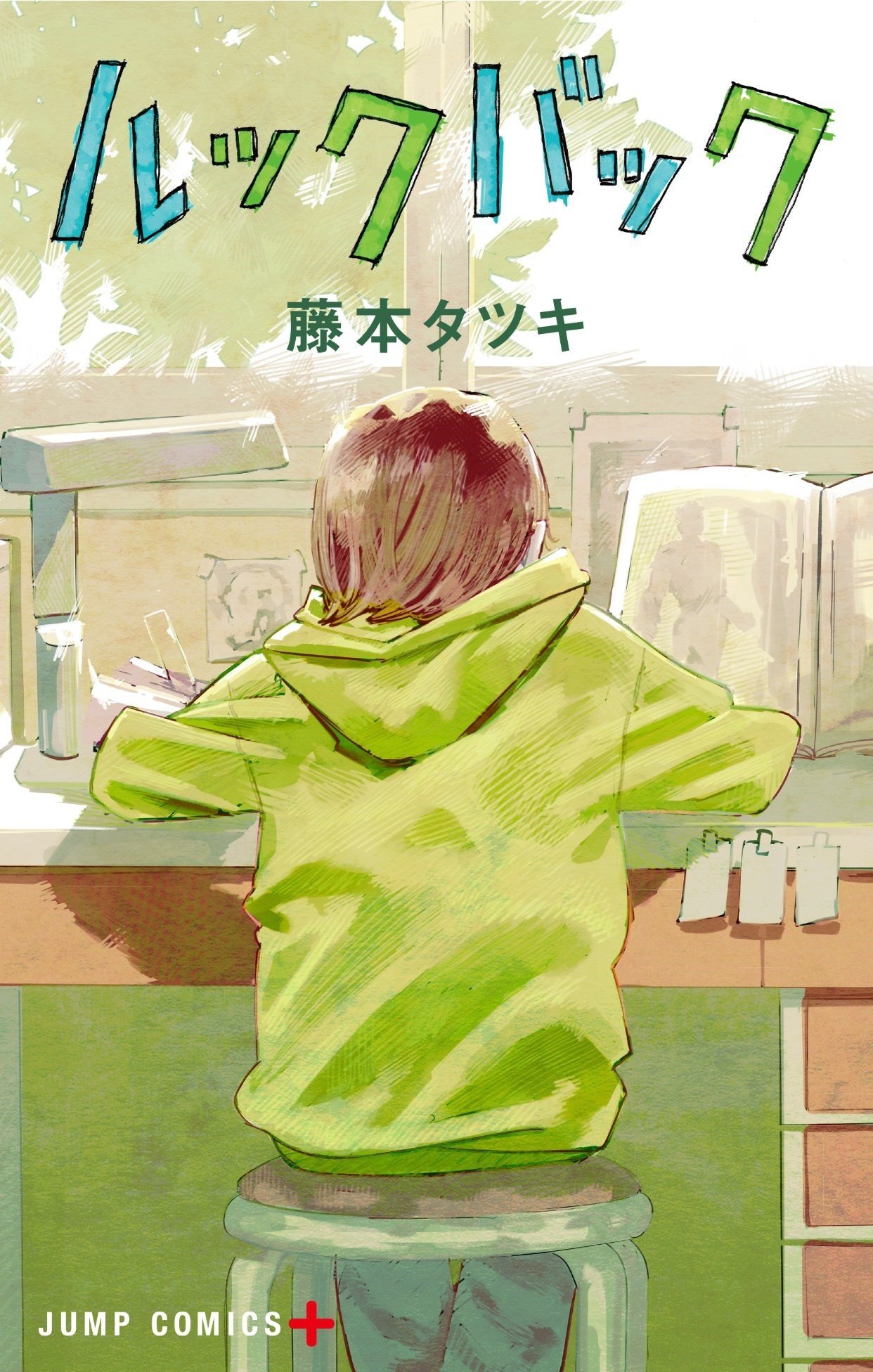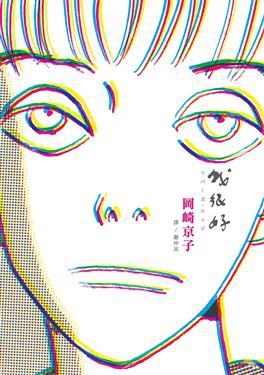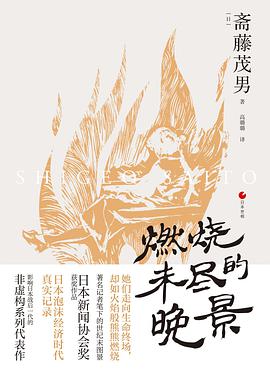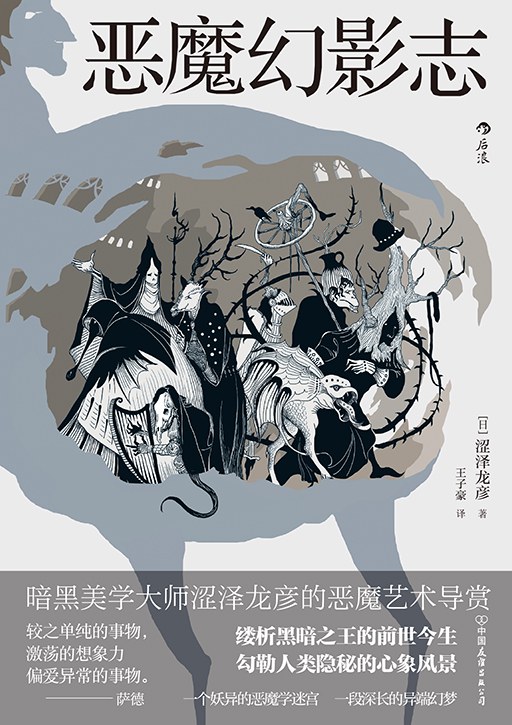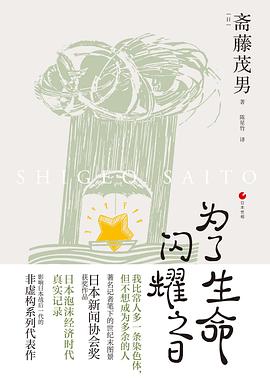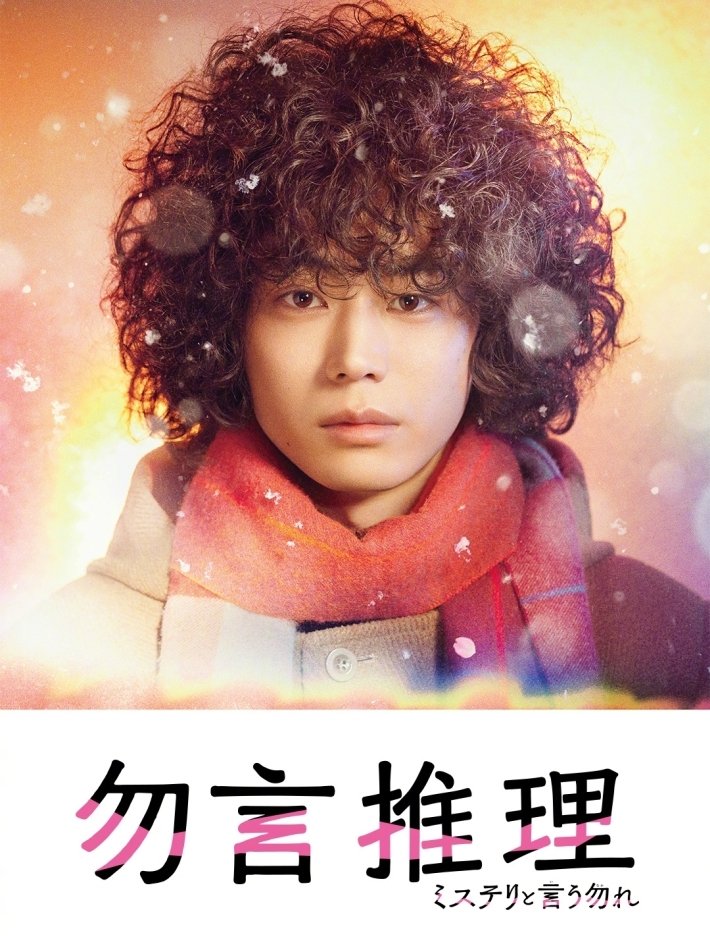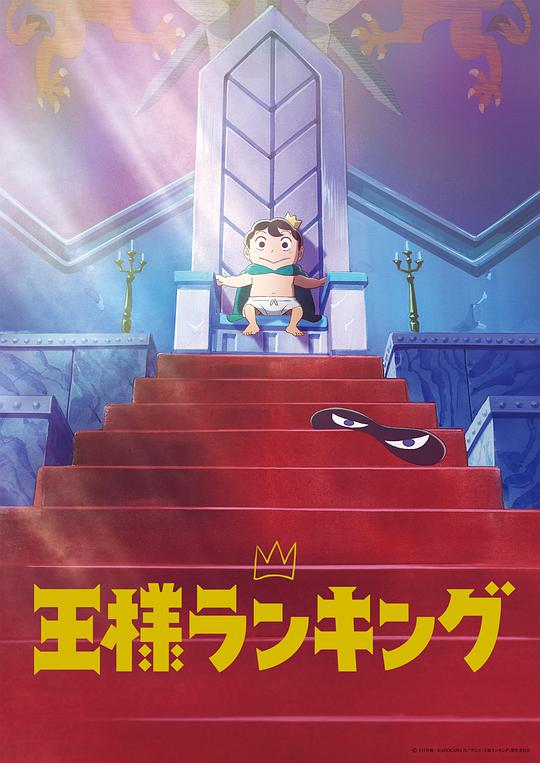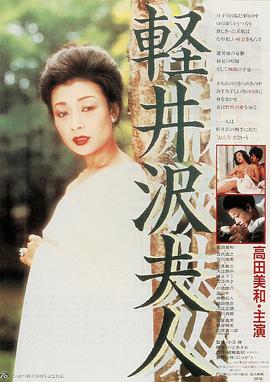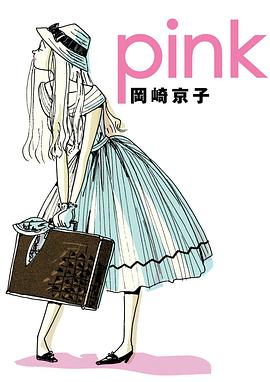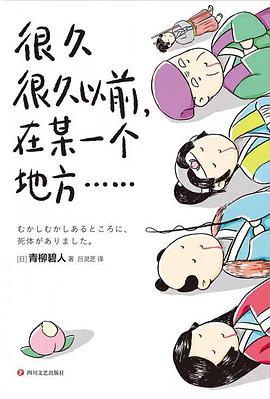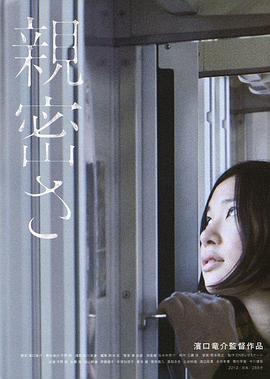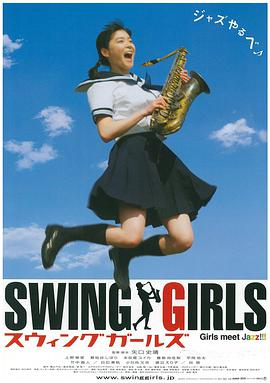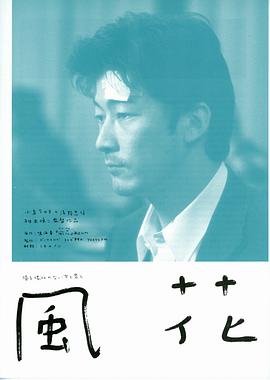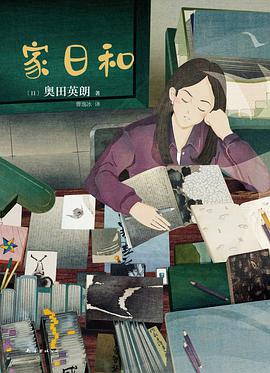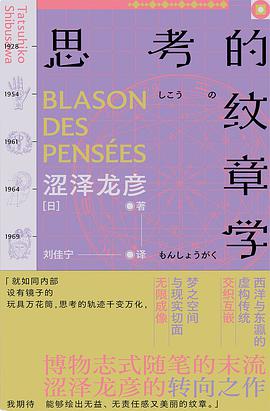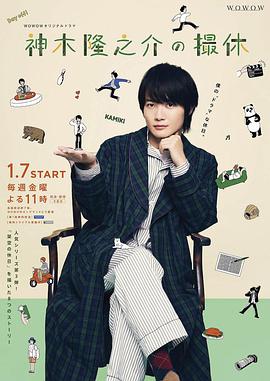日本
我很好 豆瓣
リバーズエッジ
9.0 (43 个评分)
作者:
岡崎京子
译者:
謝仲其
臉譜文化
2014
- 2
現代小說大家吉本芭娜娜盛讚!-「她是最能展現日本泡沫經濟時代浮華與虛無的作家。」
國際攝影師蜷川實花感嘆!-「時代終於追上她,如今再看更有真實感。」
──她是「岡崎京子」!
善於描寫物質社會閉塞虛幻、個人苦悶及情慾悖德場景的岡崎京子,透過洗練的畫風、紮實流暢而大膽的劇情安排、精準前衛的人物設定,於本作翻轉春青定義,直剖人性核心。
本書描繪九○年代初期,日本泡沫經濟時代都市高中生們的生活樣貌。
「我們的城鎮有條河流經過。河流至此已經十分接近河口,河道寬廣、水流沉滯,很臭。而我們的學校正在這條河的旁邊。」
在學校總是獨來獨往、被謠傳是同性戀的山田,帶頭霸凌山田的不良少年的女友若草,以及影劇圈的當紅炸子雞學妹吉川,看似無交集的三人,在因緣際會下竟建立起某種革命情感,把學校後方河灘草叢裡早已腐爛的遊民屍體當作共享的寶物。
「看著這屍體,會帶給我勇氣。」山田說。
「這世上大家都在裝帥氣、裝可愛、假裝很開心,全他媽作夢。」吉川說。
「我們都是為了隱藏些什麼,為了避開自己內心真正的想法而不停的說話。」若草說。
圍繞著這三人的,還有若草的不良少年男友觀音崎、表面上和山田交往但卻不被愛的田島、若草的好友卻和觀音崎有一腿崇拜名牌的留美……每個人背後,都有著別人看不見的另一副表情,各自暗暗累積背負著的苦痛。
但隨著草叢裡藏有寶藏的謠言傳開,這三人及周遭好友所處的世界終於扭曲崩解,最後,竟帶來了一具新的屍體──「青春」在此,不再被用來借代光明與充滿希望的未來,而是一切難以面對之惡;這本書裡頭的一切,看似荒唐,其實再真實不過。
「慘劇不是突然發生的。沒有突然發生的慘劇。他們其實都是緩緩地悄悄地準備著、進行著,在愚蠢的日常當中,在無趣的每一天當中。它們──最後就像氣球,砰一聲地爆開來。」
「岡崎京子的作品,直到現在看來都絲毫沒有過時之感。」此作自1994年問世以來二十年間,在日已改版三次,並於2000年、2008年二度製作「精裝愛藏版」供漫迷收藏,可見其時代經典地位。
書中各角色形象立體鮮明,忠實表現各自象徵的性格及內心苦痛,錯綜的角色關係也巧妙地清晰呈現。加上作者大膽的提問反思與富哲學性的詩意描寫,讓此作品遠超越坊間其他流行之作,不只作為日漫殿堂級經典深植人心,更吸引無數評論家撰寫專文剖析,甚至有學者以學術論文形式深度探討此書,除被認為岡崎京子本人生涯最高傑作之外,更是日本漫畫躋身文學成就高度的指標性作品,廣受各界稱頌研究。
「看我們如何在平凡的戰場上生存下來。」
好評推薦(按姓氏筆劃)
小葉日本台(知名部落格)|李桐豪(作家)|陳玠安(作家)|陳德政(作家)|簡嫚書(演員)
山田說:「幾百隻魚被水槽關在幾百噸重的人工海水裡,感覺太怪了。為什麼你們會在那裡?」我說:「壓力就像人工食品,明知一切都是假象,卻仍然甘之如飴。」或許我們都錯了,擅自定義青春是充滿光明的。畢竟我們本來就不能期待生長在高壓罐頭中的年輕朋友們,在罐頭蓋開啟時是甜美多汁的新鮮草莓而不是摻有人造香料與色素的草莓爛泥。
透過此書,作者岡崎京子對青春這個名詞,提出了全新的定義。
──演員 簡嫚書
能夠活到現在,我們都生存下來了。
這並不是很容易,也沒什麼好得意,就只是一個事實。
明天開始,若遮蔽自我的誠實感受,事實中的悔恨與遺憾會反撲。
如果崩潰與接納只是一瞬間,要如何重生?
這本書談的是這樣的命題,青春校園男女情愛只是包裝。
關於恐懼與生存的焦慮,根本沒有上限。
根本的問題不解決,要怎麼向前?
崩潰只是遲早的吧。
叛逆有時候只是偽裝的假惡,是壓抑箝制了生命吧。
──作家 陳玠安
國際攝影師蜷川實花感嘆!-「時代終於追上她,如今再看更有真實感。」
──她是「岡崎京子」!
善於描寫物質社會閉塞虛幻、個人苦悶及情慾悖德場景的岡崎京子,透過洗練的畫風、紮實流暢而大膽的劇情安排、精準前衛的人物設定,於本作翻轉春青定義,直剖人性核心。
本書描繪九○年代初期,日本泡沫經濟時代都市高中生們的生活樣貌。
「我們的城鎮有條河流經過。河流至此已經十分接近河口,河道寬廣、水流沉滯,很臭。而我們的學校正在這條河的旁邊。」
在學校總是獨來獨往、被謠傳是同性戀的山田,帶頭霸凌山田的不良少年的女友若草,以及影劇圈的當紅炸子雞學妹吉川,看似無交集的三人,在因緣際會下竟建立起某種革命情感,把學校後方河灘草叢裡早已腐爛的遊民屍體當作共享的寶物。
「看著這屍體,會帶給我勇氣。」山田說。
「這世上大家都在裝帥氣、裝可愛、假裝很開心,全他媽作夢。」吉川說。
「我們都是為了隱藏些什麼,為了避開自己內心真正的想法而不停的說話。」若草說。
圍繞著這三人的,還有若草的不良少年男友觀音崎、表面上和山田交往但卻不被愛的田島、若草的好友卻和觀音崎有一腿崇拜名牌的留美……每個人背後,都有著別人看不見的另一副表情,各自暗暗累積背負著的苦痛。
但隨著草叢裡藏有寶藏的謠言傳開,這三人及周遭好友所處的世界終於扭曲崩解,最後,竟帶來了一具新的屍體──「青春」在此,不再被用來借代光明與充滿希望的未來,而是一切難以面對之惡;這本書裡頭的一切,看似荒唐,其實再真實不過。
「慘劇不是突然發生的。沒有突然發生的慘劇。他們其實都是緩緩地悄悄地準備著、進行著,在愚蠢的日常當中,在無趣的每一天當中。它們──最後就像氣球,砰一聲地爆開來。」
「岡崎京子的作品,直到現在看來都絲毫沒有過時之感。」此作自1994年問世以來二十年間,在日已改版三次,並於2000年、2008年二度製作「精裝愛藏版」供漫迷收藏,可見其時代經典地位。
書中各角色形象立體鮮明,忠實表現各自象徵的性格及內心苦痛,錯綜的角色關係也巧妙地清晰呈現。加上作者大膽的提問反思與富哲學性的詩意描寫,讓此作品遠超越坊間其他流行之作,不只作為日漫殿堂級經典深植人心,更吸引無數評論家撰寫專文剖析,甚至有學者以學術論文形式深度探討此書,除被認為岡崎京子本人生涯最高傑作之外,更是日本漫畫躋身文學成就高度的指標性作品,廣受各界稱頌研究。
「看我們如何在平凡的戰場上生存下來。」
好評推薦(按姓氏筆劃)
小葉日本台(知名部落格)|李桐豪(作家)|陳玠安(作家)|陳德政(作家)|簡嫚書(演員)
山田說:「幾百隻魚被水槽關在幾百噸重的人工海水裡,感覺太怪了。為什麼你們會在那裡?」我說:「壓力就像人工食品,明知一切都是假象,卻仍然甘之如飴。」或許我們都錯了,擅自定義青春是充滿光明的。畢竟我們本來就不能期待生長在高壓罐頭中的年輕朋友們,在罐頭蓋開啟時是甜美多汁的新鮮草莓而不是摻有人造香料與色素的草莓爛泥。
透過此書,作者岡崎京子對青春這個名詞,提出了全新的定義。
──演員 簡嫚書
能夠活到現在,我們都生存下來了。
這並不是很容易,也沒什麼好得意,就只是一個事實。
明天開始,若遮蔽自我的誠實感受,事實中的悔恨與遺憾會反撲。
如果崩潰與接納只是一瞬間,要如何重生?
這本書談的是這樣的命題,青春校園男女情愛只是包裝。
關於恐懼與生存的焦慮,根本沒有上限。
根本的問題不解決,要怎麼向前?
崩潰只是遲早的吧。
叛逆有時候只是偽裝的假惡,是壓抑箝制了生命吧。
──作家 陳玠安
燃烧未尽的晚景 豆瓣
7.7 (10 个评分)
作者:
[日] 斋藤茂男
译者:
高璐璐
2022
- 3
◎ 她们走向生命终场,却如火焰般熊熊燃烧
◎ 豆瓣口碑之作《妻子们的思秋期》续篇
◎ 日本泡沫经济时代真实记录
◎ 著名记者笔下的世纪末图景
◎ 日本新闻协会奖获奖作品
◎ 影响日本战后一代的非虚构系列代表作
——————
曾经的一代代日本女性,生养过很多孩子,照顾年迈而痴呆的父母,努力战胜贫穷,很快地过完了自己短暂的一生……但谁说女性生来就要依附于丈夫、为家庭奉献?
时过境迁,主妇们越来越坚定了要开拓自我的决心。背负沉重照护压力的她们、迸发出旺盛生命力的她们、无处诉说苦闷只得自行了断的她们……共同描绘出日本现代女性的老后群像。
如何更有尊严地老去?妻子、母亲、儿媳们的“革命”成功了吗?
——————
在《妻子们的思秋期》中,中年妻子们将全身心奉献给家庭,让作为企业战士的丈夫没有后顾之忧,全力奔跑,支撑起了日本经济的飞速发展,却没有人看到她们的无尽等待、寂寞和忍耐。
作为续篇,本书继续探索了现代社会里中年、晚年女性的生存实态。令人意外的是,现代日本女性不同于她们的前辈,越发坚定了要活出自我、度过精彩余生的决心。妻子们喷涌的生命热情让人们重新审视自己的“老年观”,原来,她们也可以大大方方地体验性与生命的悲欢……
而另一方面,眼下的现实仍然是,挑起照护老人重任的人往往是女性而非男性。妻子们在照护老人的沉重生活里难以喘息,也为自己仅有一次的美好年华的逝去而无限惋惜。随着老龄化社会的到来,老年痴呆患者的数量也越来越多,仅仅依赖妻子们来承担赡养老人这一重任,已无法满足越发庞大的需求。如何照护老人,由谁来照护他们,不仅是家庭要面对的问题,更是全社会的紧迫课题……
◎ 豆瓣口碑之作《妻子们的思秋期》续篇
◎ 日本泡沫经济时代真实记录
◎ 著名记者笔下的世纪末图景
◎ 日本新闻协会奖获奖作品
◎ 影响日本战后一代的非虚构系列代表作
——————
曾经的一代代日本女性,生养过很多孩子,照顾年迈而痴呆的父母,努力战胜贫穷,很快地过完了自己短暂的一生……但谁说女性生来就要依附于丈夫、为家庭奉献?
时过境迁,主妇们越来越坚定了要开拓自我的决心。背负沉重照护压力的她们、迸发出旺盛生命力的她们、无处诉说苦闷只得自行了断的她们……共同描绘出日本现代女性的老后群像。
如何更有尊严地老去?妻子、母亲、儿媳们的“革命”成功了吗?
——————
在《妻子们的思秋期》中,中年妻子们将全身心奉献给家庭,让作为企业战士的丈夫没有后顾之忧,全力奔跑,支撑起了日本经济的飞速发展,却没有人看到她们的无尽等待、寂寞和忍耐。
作为续篇,本书继续探索了现代社会里中年、晚年女性的生存实态。令人意外的是,现代日本女性不同于她们的前辈,越发坚定了要活出自我、度过精彩余生的决心。妻子们喷涌的生命热情让人们重新审视自己的“老年观”,原来,她们也可以大大方方地体验性与生命的悲欢……
而另一方面,眼下的现实仍然是,挑起照护老人重任的人往往是女性而非男性。妻子们在照护老人的沉重生活里难以喘息,也为自己仅有一次的美好年华的逝去而无限惋惜。随着老龄化社会的到来,老年痴呆患者的数量也越来越多,仅仅依赖妻子们来承担赡养老人这一重任,已无法满足越发庞大的需求。如何照护老人,由谁来照护他们,不仅是家庭要面对的问题,更是全社会的紧迫课题……
恶魔幻影志 豆瓣
悪魔の中世
7.5 (19 个评分)
作者:
[日]涩泽龙彦
译者:
王子豪
后浪丨中国友谊出版公司
2021
- 10
▲较之单纯的事物,激荡的想象力偏爱异常的事物。 ——萨德
暗黑美学大师涩泽龙彦的恶魔艺术导赏
缕析黑暗之王的前世今生 勾勒人类隐秘的心象风景
一个妖异的恶魔学迷宫 一段深长的异端幻梦
▲编辑推荐
“恐惧是人类所持有的最古老、最强烈的情感。”恐怖小说作家洛夫克拉夫特 如是 写道。恐惧心理所滋生的,是人类天马行空的恶魔幻想。
◎ 诡谲暗黑的恶魔艺术导赏,九个字字珠玑的篇章,构筑一个妖异的恶魔学迷宫,兼具知识性和趣味性。
从埃及和古希腊的众神,到古洞窟壁画中的巫师;从魔王路西法,到犬头人;从德拉克洛瓦的《梅菲斯特》、老勃鲁盖尔的《叛逆天使的堕落》,到博斯的《圣安东尼的诱惑》《最后的审判》……步入这座恶魔学迷宫,满眼是人类想象力绽放的妖异之花。
◎ 以旁逸斜出之笔,书写深层心灵渊源,勾勒人类隐秘的心象风景。
从恶魔形象的起源与流变,到“圣安东尼的诱惑”等绘画主题;从冥府与《启示录》中的众多怪兽,到各色龙与死亡之幻象……纵横捭阖间,涩泽龙彦为我们缕析了恶魔艺术的前世今生,同时纳入深层心理学、人类学和民俗学的最新成果,直指恶魔艺术的本质:它是人类恐惧与虚无的幻影,是死亡与爱欲的魅惑化身。读这本小书,与其说是在见识“恶魔”,莫如说是去审视人类的“第二自我”。
◎ 上承布勒东、巴尔特鲁塞蒂斯,下启美术史书写重大变革的名作,涩泽龙彦日后的写作均萌芽于此。
艺术起源于魔法,艺术诞生于魔法。从引领超现实主义运动的布勒东,到伟大的僭越者萨德;从“后现代的思想策源地之一”巴塔耶,到欧洲文化史家赫伊津哈,他们既是涩泽龙彦信手拈来的征引对象,也是其一脉同宗的精神先师。他们所共享的,是对异常事物的钟情。诚如萨德所说:较之单纯的事物,激荡的想象力偏爱异常的事物。
◎ 装帧精美,图文并茂,直观呈现令人目不暇接的恶魔世界。
书中兼配七十余幅插图,多为名家经典画作,方便读者充分且具象地体验恶魔幻想艺术的参差多姿。
▲内容简介
《恶魔幻影志》是日本文化学者、幻想文学大师涩泽龙彦关于恶魔幻想艺术的文化札记,收录了其于1961年发表于杂志的九个珍奇篇章。
从原始洞窟艺术、各大古文明神话,到《启示录》抄本、世界各地的教堂艺术;从德拉克洛瓦的《梅菲斯特》、老勃鲁盖尔的《叛逆天使的堕落》,到博斯的《圣安东尼的诱惑》《最后的审判》,涩泽龙彦以其令人目不暇接的博学,带领我们步入这妖异的恶魔学迷宫。通过开掘其异色思想源泉,他以扎实而摇曳多姿的笔致,缕析了恶魔幻想艺术的前世今生及其种种元素和主题,并文之以颇具启发意义的文化洞见,直指恶魔艺术的本质。最终,他所揭示的,是人类隐秘的心象风景;他所吐露的,是对异端幻梦的无尽钟情。书中更兼配七十余幅插图,直观反映了介绍的相关作品。
▲名人推荐
◎若借用赫伯特·里德的说法,凡涩泽笔触所及之处,神话盖过历史,意象先于观念,图像取代了理型……这本由诸多要素编织的研究笔记无疑构成了涩泽龙彦的原点。他日后的写作已在此书中萌芽,而这萌芽在一定程度上不妨被视作某种预言。
——谷川渥 日本美学家、批评家
◎要是没有了这个人,日本会是一个多么寂寞的国家啊。
——三岛由纪夫
◎《恶魔幻影志》确实是笔者最心爱的作品之一,正因如此,它才迟至今日面世。笔者现在深切地体味到了眼看着掌上明珠嫁为人妇的父亲的心境。
——涩泽龙彦
暗黑美学大师涩泽龙彦的恶魔艺术导赏
缕析黑暗之王的前世今生 勾勒人类隐秘的心象风景
一个妖异的恶魔学迷宫 一段深长的异端幻梦
▲编辑推荐
“恐惧是人类所持有的最古老、最强烈的情感。”恐怖小说作家洛夫克拉夫特 如是 写道。恐惧心理所滋生的,是人类天马行空的恶魔幻想。
◎ 诡谲暗黑的恶魔艺术导赏,九个字字珠玑的篇章,构筑一个妖异的恶魔学迷宫,兼具知识性和趣味性。
从埃及和古希腊的众神,到古洞窟壁画中的巫师;从魔王路西法,到犬头人;从德拉克洛瓦的《梅菲斯特》、老勃鲁盖尔的《叛逆天使的堕落》,到博斯的《圣安东尼的诱惑》《最后的审判》……步入这座恶魔学迷宫,满眼是人类想象力绽放的妖异之花。
◎ 以旁逸斜出之笔,书写深层心灵渊源,勾勒人类隐秘的心象风景。
从恶魔形象的起源与流变,到“圣安东尼的诱惑”等绘画主题;从冥府与《启示录》中的众多怪兽,到各色龙与死亡之幻象……纵横捭阖间,涩泽龙彦为我们缕析了恶魔艺术的前世今生,同时纳入深层心理学、人类学和民俗学的最新成果,直指恶魔艺术的本质:它是人类恐惧与虚无的幻影,是死亡与爱欲的魅惑化身。读这本小书,与其说是在见识“恶魔”,莫如说是去审视人类的“第二自我”。
◎ 上承布勒东、巴尔特鲁塞蒂斯,下启美术史书写重大变革的名作,涩泽龙彦日后的写作均萌芽于此。
艺术起源于魔法,艺术诞生于魔法。从引领超现实主义运动的布勒东,到伟大的僭越者萨德;从“后现代的思想策源地之一”巴塔耶,到欧洲文化史家赫伊津哈,他们既是涩泽龙彦信手拈来的征引对象,也是其一脉同宗的精神先师。他们所共享的,是对异常事物的钟情。诚如萨德所说:较之单纯的事物,激荡的想象力偏爱异常的事物。
◎ 装帧精美,图文并茂,直观呈现令人目不暇接的恶魔世界。
书中兼配七十余幅插图,多为名家经典画作,方便读者充分且具象地体验恶魔幻想艺术的参差多姿。
▲内容简介
《恶魔幻影志》是日本文化学者、幻想文学大师涩泽龙彦关于恶魔幻想艺术的文化札记,收录了其于1961年发表于杂志的九个珍奇篇章。
从原始洞窟艺术、各大古文明神话,到《启示录》抄本、世界各地的教堂艺术;从德拉克洛瓦的《梅菲斯特》、老勃鲁盖尔的《叛逆天使的堕落》,到博斯的《圣安东尼的诱惑》《最后的审判》,涩泽龙彦以其令人目不暇接的博学,带领我们步入这妖异的恶魔学迷宫。通过开掘其异色思想源泉,他以扎实而摇曳多姿的笔致,缕析了恶魔幻想艺术的前世今生及其种种元素和主题,并文之以颇具启发意义的文化洞见,直指恶魔艺术的本质。最终,他所揭示的,是人类隐秘的心象风景;他所吐露的,是对异端幻梦的无尽钟情。书中更兼配七十余幅插图,直观反映了介绍的相关作品。
▲名人推荐
◎若借用赫伯特·里德的说法,凡涩泽笔触所及之处,神话盖过历史,意象先于观念,图像取代了理型……这本由诸多要素编织的研究笔记无疑构成了涩泽龙彦的原点。他日后的写作已在此书中萌芽,而这萌芽在一定程度上不妨被视作某种预言。
——谷川渥 日本美学家、批评家
◎要是没有了这个人,日本会是一个多么寂寞的国家啊。
——三岛由纪夫
◎《恶魔幻影志》确实是笔者最心爱的作品之一,正因如此,它才迟至今日面世。笔者现在深切地体味到了眼看着掌上明珠嫁为人妇的父亲的心境。
——涩泽龙彦
进击的巨人 最终季 Part.2 (2022) 豆瓣
進撃の巨人 The Final Season Part.2 Season 4 所属 电视剧集: 进击的巨人
9.1 (353 个评分)
导演:
林祐一郎
/
宍户淳
演员:
梶裕贵
/
石川由依
…
在艾伦他们居住的帕拉迪岛之外,还存在一个其他人类居住的世界。当中一个国家「玛雷」与其他各国爆发战争。陷入苦战之际,他们决定要攻进帕拉迪岛,把「始祖的巨人」抢过来。在这里又看到另一群孩子们拼命求生存的身影……
为了生命闪耀之日 豆瓣
8.0 (11 个评分)
作者:
[日] 斋藤茂男
译者:
陈星竹
2022
- 3
◎ 我比常人多一条染色体,但不想成为多余的人
◎ 日本泡沫经济时代真实记录
◎ 著名记者笔下的世纪末图景
◎ 日本新闻协会奖获奖作品
◎ 影响日本战后一代的非虚构系列代表作
——————
有一个孩子,她刚出生时就被诊断为内脏器官受损的唐氏儿,维持生命的希望微乎其微,
如果你是她的父母,或是医生、护士,再或是和她完全没有关系的局外人,你会选择救她还是任其死去?
围绕这个唐氏儿的生死问题,日本社会展开了激烈的讨论,展开了对生命意义的追问、对人类不断追求进化的反省……
这是一场与死神赛跑的生命救援。
但,孩子最终得救了吗?
——————
随着经济的高度发展,日本社会越发奉行效率主义和社会达尔文主义,只想留下最高效的少数精锐部队,以求在残酷的国际竞争中立于不败之地。而如同唐氏儿那样,落后于快速变化浪潮的人,正像“工业废渣”一样被他们的“同类”无情丢弃、冷眼相对。
有人说,带着残疾生活的孩子太可怜了,他们是不会幸福的;也有人说,把抚养唐氏儿的义务强塞给和她共度一生的父母是残忍的,外人没资格说三道四;还有人说,在抚养唐氏儿的过程中,他们的心灵得到了治愈与重生……人类对待他们“同类”的态度,映照着涌动在社会底层的暗流。没有人能确信自己免于交通事故、灾难或疾病,今日的强者也会沦为明日的弱者,谁都不想在需要支持的时候失去连接、独自面对。像一束光一样闪现在世间的唐氏儿,推动着我们思考“如何像人一样活着”……
◎ 日本泡沫经济时代真实记录
◎ 著名记者笔下的世纪末图景
◎ 日本新闻协会奖获奖作品
◎ 影响日本战后一代的非虚构系列代表作
——————
有一个孩子,她刚出生时就被诊断为内脏器官受损的唐氏儿,维持生命的希望微乎其微,
如果你是她的父母,或是医生、护士,再或是和她完全没有关系的局外人,你会选择救她还是任其死去?
围绕这个唐氏儿的生死问题,日本社会展开了激烈的讨论,展开了对生命意义的追问、对人类不断追求进化的反省……
这是一场与死神赛跑的生命救援。
但,孩子最终得救了吗?
——————
随着经济的高度发展,日本社会越发奉行效率主义和社会达尔文主义,只想留下最高效的少数精锐部队,以求在残酷的国际竞争中立于不败之地。而如同唐氏儿那样,落后于快速变化浪潮的人,正像“工业废渣”一样被他们的“同类”无情丢弃、冷眼相对。
有人说,带着残疾生活的孩子太可怜了,他们是不会幸福的;也有人说,把抚养唐氏儿的义务强塞给和她共度一生的父母是残忍的,外人没资格说三道四;还有人说,在抚养唐氏儿的过程中,他们的心灵得到了治愈与重生……人类对待他们“同类”的态度,映照着涌动在社会底层的暗流。没有人能确信自己免于交通事故、灾难或疾病,今日的强者也会沦为明日的弱者,谁都不想在需要支持的时候失去连接、独自面对。像一束光一样闪现在世间的唐氏儿,推动着我们思考“如何像人一样活着”……
更衣人偶坠入爱河 (2022) 豆瓣 Bangumi Eggplant.place TMDB
その着せ替え人形は恋をする Season 1 所属 电视剧集: 更衣人偶坠入爱河
7.4 (150 个评分)
导演:
Keisuke Shinohara
演员:
Hina Suguta
/
Shoya Ishige
…
High schooler Wakana Gojo wants to become a kashirashi—a master craftsman who makes traditional Japanese Hina dolls. Though he's gung-ho about the craft, he knows nothing about the latest trends, and has a hard time fitting in with his class. The popular kids—especially one girl, Marin Kitagawa—seem like they live in a completely different world. That all changes one day, when she shares an unexpected secret with him, and their completely different worlds collide.
轻井泽夫人 (1982) 豆瓣 维基数据 TMDB
軽井沢夫人
6.0 (7 个评分)
导演:
小沼胜
演员:
高田美和
/
根岸明美
…
其它标题:
카루이자와 부인
/
軽井沢夫人
…
大学生紫藤纯一(五代高之 饰)一心想挤进上流阶层,利用假期到轻井泽的高级餐馆打工。几天后,紫藤作为服务员被派往中川总业的社长中川玄一郎(土屋嘉男 饰)的别墅。在那里,紫藤对社长夫人佳子(高田美和 饰)一见钟情,恍惚中紫藤失手滑落了餐盘,遭到中川痛责,但是佳子庇护了紫藤。
第二天,被解雇的紫藤偶然遇到了带着儿子有一(伊藤将人 饰)的佳子。佳子离开了包养情人的中川,过着孤独的生活。佳子对紫藤的遭遇表示同情,决定请他做家庭教师。紫藤抓住了进阶的机会,顺利地勾引上佳子。不料,在住进佳子亡姐的别墅以后,佳子的外甥女亚矢(吉川由美 饰)和她的恋人冈崎财阀的少爷雅和(五代高之 饰)盯上了紫藤。有案在身的雅和想利用紫藤伪造自己已死的假象,逃脱警方和仇家的追踪。入夜,紫藤和亚矢如约来到冈崎的别墅,发现了已经死去多时的冈崎。害怕受到牵连的紫藤匆匆将尸体掩埋,并威胁亚矢说两个人已经是共犯,迫使亚矢结婚。
紫藤和亚矢去餐厅吃饭的时候,遇到了带着有一的佳子。得知两人已经订婚了,受到打击的佳子默默离开了餐厅。看到佳子伤心欲绝的模样,紫藤忍不住向她吐露了实情。为了确认真相,佳子向警方报了案,结果挖出了雅和的尸体,紫藤和亚矢被迫开始驾车逃亡,途中迎面撞上高速行进的列车,两人当场死亡。听到紫藤的死亡消息,佳子前往遗体安置所。在那里,酒岛警视(江原真二郎 饰)告诉佳子杀害雅和的并不是紫藤。佳子亲吻着被切断了脖子的紫藤,百感交集。轻井泽的夏天,好像什么都没发生过一样又要结束了...
第二天,被解雇的紫藤偶然遇到了带着儿子有一(伊藤将人 饰)的佳子。佳子离开了包养情人的中川,过着孤独的生活。佳子对紫藤的遭遇表示同情,决定请他做家庭教师。紫藤抓住了进阶的机会,顺利地勾引上佳子。不料,在住进佳子亡姐的别墅以后,佳子的外甥女亚矢(吉川由美 饰)和她的恋人冈崎财阀的少爷雅和(五代高之 饰)盯上了紫藤。有案在身的雅和想利用紫藤伪造自己已死的假象,逃脱警方和仇家的追踪。入夜,紫藤和亚矢如约来到冈崎的别墅,发现了已经死去多时的冈崎。害怕受到牵连的紫藤匆匆将尸体掩埋,并威胁亚矢说两个人已经是共犯,迫使亚矢结婚。
紫藤和亚矢去餐厅吃饭的时候,遇到了带着有一的佳子。得知两人已经订婚了,受到打击的佳子默默离开了餐厅。看到佳子伤心欲绝的模样,紫藤忍不住向她吐露了实情。为了确认真相,佳子向警方报了案,结果挖出了雅和的尸体,紫藤和亚矢被迫开始驾车逃亡,途中迎面撞上高速行进的列车,两人当场死亡。听到紫藤的死亡消息,佳子前往遗体安置所。在那里,酒岛警视(江原真二郎 饰)告诉佳子杀害雅和的并不是紫藤。佳子亲吻着被切断了脖子的紫藤,百感交集。轻井泽的夏天,好像什么都没发生过一样又要结束了...
无敌青春 (2004) 豆瓣
パッチギ!
7.9 (26 个评分)
导演:
井筒和幸
演员:
盐谷瞬
/
泽尻英龙华
…
其它标题:
パッチギ!
/
突破界限
…
1968年的京都,在革命热潮席卷全球的时代,这座古老的都市也无法偏守安宁。府立东高的松山康介(塩谷瞬 饰)和吉田纪男(小出恵介 饰)被共产狂热的布川老师(光石研 饰)命令前往朝鲜高中,与对方约定一场亲善足球赛。康介偶然被《临津江》的优美旋律所吸引,更对朝高的老大李安成(高冈苍佑 饰)的妹妹庆子(泽尻英龙华 饰)产生好感。此后他从英俊青年坂崎(小田切让 饰)那里听说了朝鲜的历史,不禁也为自己国家的未来感到担忧。安成准备毕业后归国,带领朝鲜队冲入世界杯,但是他还无法遽然从热血的生活中抽身。康介坚持学习演奏《临津江》,他渴望有朝一日能和庆子一同演奏。超越了种族和国家,少男少女们的金色青春……
本片荣获第79回电影旬报十佳影片第一名。
本片荣获第79回电影旬报十佳影片第一名。
Pink 豆瓣 Goodreads
8.7 (31 个评分)
作者:
岡崎京子
マガジンハウス
2010
- 7
89年初版の発売と同時に岡崎京子の名を文学界にまで知らしめた、傑作中の傑作を新装版で出版。評論家たちから「マンガは文学になった」と言われ、その完成度の高さが彼女のマンガ界での地位を確立したといっても過言ではない。ふだんはフツーのOLユミちゃんが、密かに自宅でワニを飼い、エサ代のため、自分の好きなものを我慢しないためにホテトル(!)嬢をしている。そこに作家を志しながら義母の愛人をしているハルヲ、義理の妹ケイコ、決して相容れない義母がからむ。リアルなセックス描写を交えながら、お金とは、本当の愛とはを描いた作品。彼女が敬愛するジャン・リュック・ゴダールを思わせるコマ割、真実をつく乾いたセリフと人物描写や時代性が、岡崎京子ならでは。
很久很久以前,在某一个地方…… 豆瓣 谷歌图书
むかしむかしあるところに、死体がありました。
7.1 (31 个评分)
作者:
[日] 青柳碧人
译者:
吕灵芝
四川文艺出版社
2021
其它标题:
很久很久以前,在某一个地方......
一寸法师的不在场证据:一寸法师打败恶鬼保护了公主。他靠打出小锤变大,心里却藏着一个计划……
花开死者的留言:老爷爷撒灰让樱花盛开。好心的他把城主的奖赏捐给了村里,反而遭人杀害……
鹤的反倒叙:村里的青年收留了无处可去的阿通。为了感谢他,阿通织了一匹布。青年得知那种布能卖高价,就让阿通再织更多……
密室龙宫:浦岛太郎救下一只海龟,被带到龙宫参加饮酒作乐的宴会。此时,伊势龙虾化身的伊势却被杀害了……
绝海鬼岛:桃太郎和他的伙伴上鬼岛打鬼,最终获得胜利。可是,真正的战斗才刚刚开始……
花开死者的留言:老爷爷撒灰让樱花盛开。好心的他把城主的奖赏捐给了村里,反而遭人杀害……
鹤的反倒叙:村里的青年收留了无处可去的阿通。为了感谢他,阿通织了一匹布。青年得知那种布能卖高价,就让阿通再织更多……
密室龙宫:浦岛太郎救下一只海龟,被带到龙宫参加饮酒作乐的宴会。此时,伊势龙虾化身的伊势却被杀害了……
绝海鬼岛:桃太郎和他的伙伴上鬼岛打鬼,最终获得胜利。可是,真正的战斗才刚刚开始……
风花 (2000) IMDb 豆瓣 维基数据 TMDB
風花
6.9 (22 个评分)
导演:
相米慎二
演员:
小泉今日子 Kyôko Koizumi
/
浅野忠信
…
其它标题:
風花
/
Kaza-hana
…
酒后失态的政府官员泽城廉司(浅野忠信 饰)因盗窃事件被杂志报道,遭到停职反省的处罚。他在风俗店邂逅了花名为“柠檬”的援交女郎富田由理子(小泉今日子 饰)。由理子丈夫去世,为还债不得不将女儿托付给故乡的母亲,独自出来赚钱。两个失意之人惺惺相惜,倍感苦闷的由理子希望见女儿一面,于是他们一同踏上前往北海道的旅途。
但旅途上的烦恼依然多多,由理子的父母拒绝她和女儿见面,廉司则被单位单方面开除。二人生之无望,决定携手走向死亡……
本片由鸣海章同名小说改编。
但旅途上的烦恼依然多多,由理子的父母拒绝她和女儿见面,廉司则被单位单方面开除。二人生之无望,决定携手走向死亡……
本片由鸣海章同名小说改编。
家日和 豆瓣
家日和
作者:
[日] 奥田英朗
译者:
曹逸冰
2022
- 1
《家日和》是直木奖得主奥田英朗暖心小说集。家庭主妇纪子迷上了网上拍卖。一开始只是为了把不用的东西处理掉,没想到一次次累积的成就感,让与社会脱节的她找回了对生活的热情。为此,她在家中四处搜寻可以拍卖的“无用”之物,渐渐把手伸向了丈夫的珍藏。
公司突然倒闭,上班族汤村只能重回家庭,不久后却发现自己对 “家庭煮夫”一职甘之如饴。妻子重回职场获得好评,家庭生活也越来越顺遂,只不过亲朋好友都对汤村一家寄予无限同情。
第20届柴田炼三郎奖获奖作,六个不同的家庭,六种不同的相处模式,奥田英朗以幽默的笔触刻画一幅幅现代家庭肖像,捕捉平凡日子中被忽略、被遗忘的幸福片段。
公司突然倒闭,上班族汤村只能重回家庭,不久后却发现自己对 “家庭煮夫”一职甘之如饴。妻子重回职场获得好评,家庭生活也越来越顺遂,只不过亲朋好友都对汤村一家寄予无限同情。
第20届柴田炼三郎奖获奖作,六个不同的家庭,六种不同的相处模式,奥田英朗以幽默的笔触刻画一幅幅现代家庭肖像,捕捉平凡日子中被忽略、被遗忘的幸福片段。
